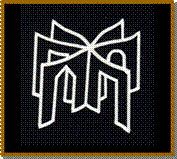El alineamiento constructivo en la enseñanza de español como lengua extranjera / segunda lengua / Constructing alignment in Spanish as a foreign/second language teaching
Palabras clave:
ELE, Proceso de enseñanza, alineamiento constructivo, DELE / ELE, Learning process, constructive alignment, DELE.Resumen
Resumen
El presente artículo analiza el esquema general de un proceso formal de enseñanza del español como LE / L2: los objetivos que se plantean, los contenidos necesarios para lograrlos, la metodología, las actividades que se emplean para la aprehensión de tales contenidos y el sistema de evaluación empleado. Comprobaremos que, en cierto momento del proceso, se tiende a romper la línea inicialmente marcada, logrando así una enseñanza no alineada y, por tanto, un aprendizaje, en cierto modo, superficial (BIGGS, 2005).
Palabras clave:ELE; Proceso de enseñanza; alineamiento constructivo; DELE.
Abstract:
The article analyzes the general outline of a formal process of Spanish as a second/foreign language teaching, from the objectives to the table of contents needed to achieve them, the methodology and the activities used for the learning of those contents and the assessment method used. It will be shown that, in a certain moment of the process, the line initially drawn is usually broken. The result is a non-aligned teaching and, therefore, a superficial learning (BIGGS, 2005).
Key words: ELE; Learning process; constructive alignment; DELE.
Referencias
Biggs, J., Calidad del aprendizaje universitario, Narcea S.A. de Ediciones, Madrid, 2005.
Consejo de Europa, Marco común europeo de referencia: enseñanza, aprendizaje, evaluación, Anaya e Instituto Cervantes, Madrid, 2001.
Entwistle, N., Styles of Learning and Teaching. An integral Outline of educational Psychology, John Wiley and Sons, Chichester, 1983.
Instituto Cervantes, Plan curricular del Instituto Cervantes. Niveles de referencia para el español, Biblioteca Nueva, Madrid, 2006.
Marton, F. y Säljö, R., «On qualitative differences in learning-I: Outcome and process», British Journal of Educational Psychology, 46 (1976), pp. 4-11.
Rosas, R., Piaget, Vygotsky y Maturana: constructivismo a tres voces, Arique, Buenos Aires, 2001.
Simarro Vázquez, M., «Los enunciados retroactivos humorísticos como medidores de la competencia léxico-semántica de hablantes de ELE», en M. Belén Alvarado Ortega y Leonor Ruiz Gurrillo (coords.), Humor, ironía y géneros textuales, Universidad de Alicante, Alicante, 2013, pp. 83-115.
Descargas
Publicado
Número
Sección
Licencia

Tejuelo se publica bajo una licencia Creative Commons Reconocimiento-NoComercial-SinObraDerivada 3.0 España.


.jpg)



